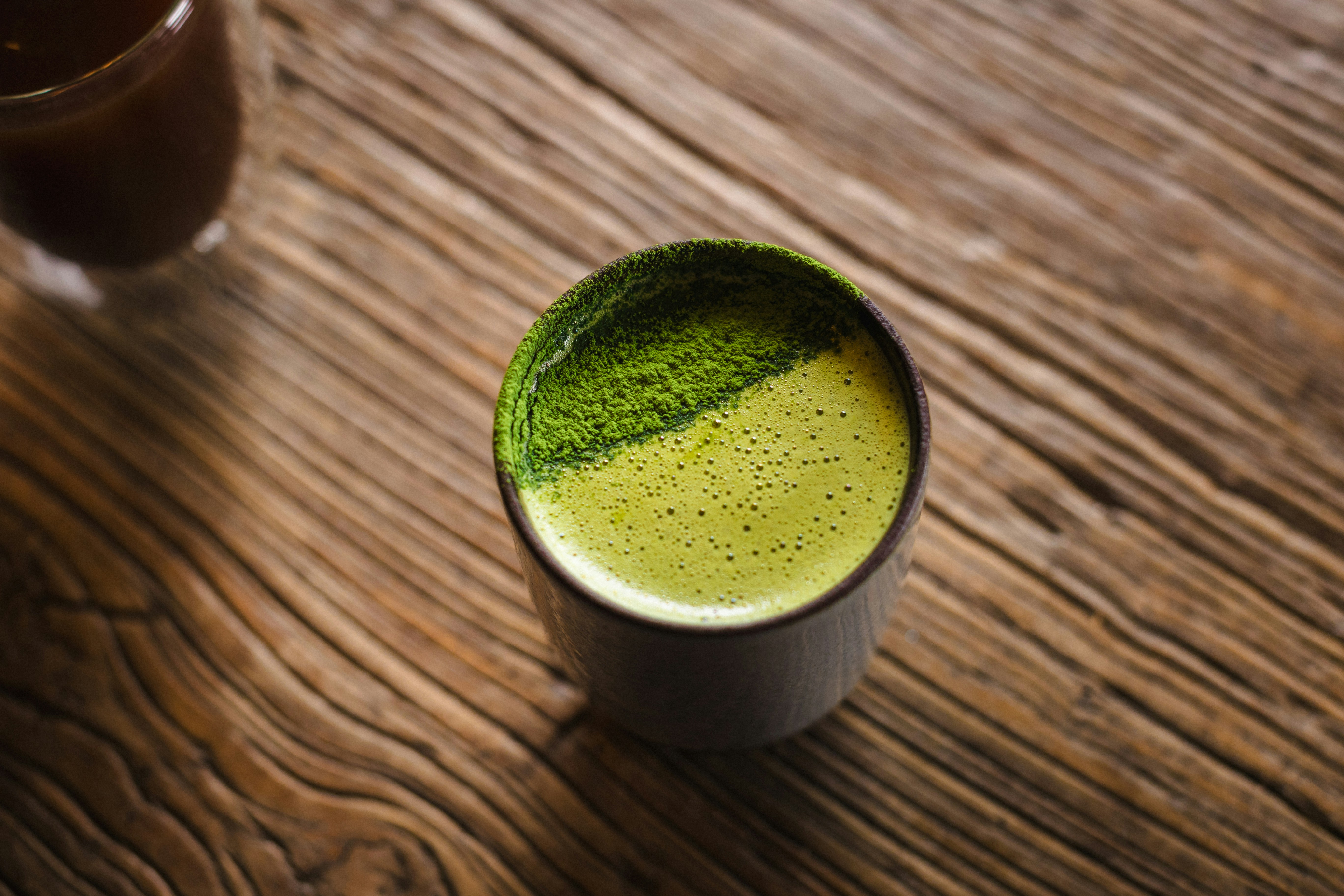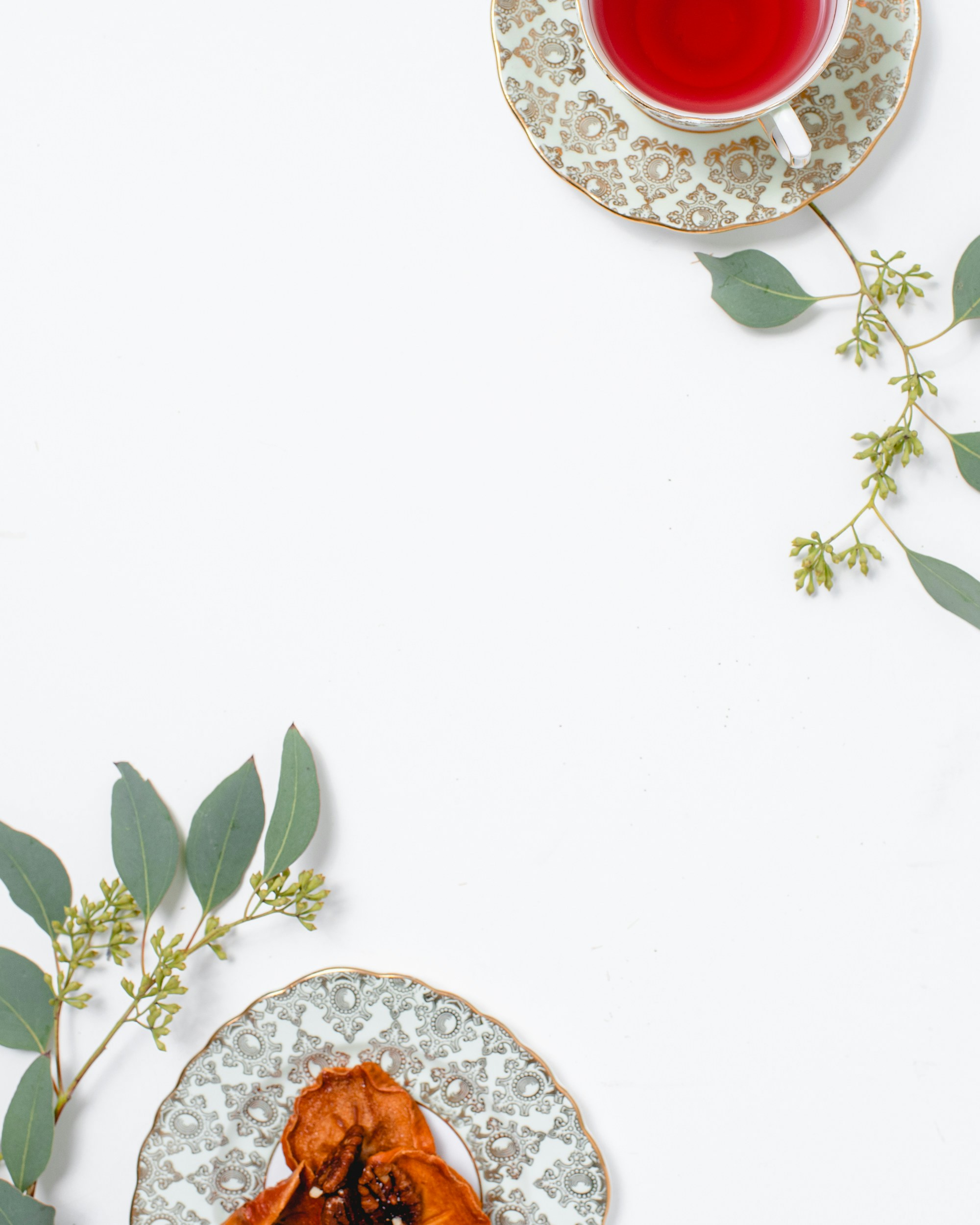Introduction: The Essence of Wellness Tea
In today’s health-conscious world, the pursuit of natural remedies and wellness practices has surged in popularity. Among these, tea stands out as a timeless beverage celebrated for its diverse health benefits. While various teas capture public attention, oolong tea, distinguished by its unique characteristics, merits special recognition. Revered for centuries in Asian cultures, oolong tea occupies a unique position between green and black tea, offering both invigorating and calming properties. This exquisite beverage not only delights the senses but also embodies a rich tradition perfectly aligned with the contemporary pursuit of holistic wellness.
Historically, wellness has been intertwined with holistic practices that emphasize balance—mentally, physically, and spiritually. Oolong tea, abundant in antioxidants and other health-enhancing compounds, has played a vital role in these practices for centuries. Ancient herbalists and practitioners recognized its efficacy in aiding digestion, fostering relaxation, and bolstering metabolic health, enabling individuals to achieve inner harmony. As wellness trends gravitate towards natural and sustainable approaches, the resurgence of oolong tea in modern health regimens represents a powerful connection between ancient wisdom and contemporary needs. My personal experience with oolong began during a particularly stressful period. Searching for a natural remedy, I serendipitously discovered this exceptional beverage. The intricate flavors and captivating aroma immediately drew me in. Integrating oolong tea into my daily routine not only alleviated my stress levels but also markedly improved my overall well-being. This profound connection with oolong solidified its place in my wellness regimen, inspiring me to explore how such traditional teas can complement modern lifestyles and contribute to a greater sense of well-being.
What is Oolong Tea? A Deep Dive into Its Origins and Production
Oolong tea, a remarkable beverage bridging the gap between green and black teas, boasts a rich history spanning centuries. Primarily originating from China, specifically the Fujian and Guangdong provinces, and more recently gaining prominence in Taiwan, oolong tea thrives under specific climatic and geographical conditions that shape its distinctive flavor profile and aroma. The mountainous terrains where oolong is cultivated provide the perfect environment, characterized by misty conditions, high altitudes, and nutrient-rich soils that nurture the tea plant’s growth and contribute to its unique character.
The production of oolong tea is a meticulous process that sets it apart from other tea varieties. Following the careful hand-picking of the leaves, they undergo a unique semi-oxidation process. This controlled oxidation, typically ranging from 10% to 80%, not only develops the complex flavor profile but also contributes to the signature floral and fruity notes. The leaves are then rolled and shaped to enhance their aesthetic appeal and preserve the essential oils responsible for the tea’s captivating aroma and flavor.
Oolong tea distinguishes itself through this precise balance of oxidation, yielding a diverse spectrum of flavors, from delicate sweet and creamy notes to robust, roasted aromas. Its semi-oxidized nature allows for a wide array of taste experiences, influenced by factors such as the specific cultivar of the tea plant, the region of cultivation, and the processing methods employed. Each cup of oolong thus reflects its unique origin, offering a sensory journey that resonates with the culture and history of its provenance.
The importance of oolong tea extends beyond its taste; it plays a crucial role in traditional Chinese culture, often featured in elaborate tea ceremonies and served during social gatherings. The versatility of this tea makes it not only a delightful beverage but also an integral part of cultural heritage across various societies, reflecting centuries of tradition and rituals associated with wellness and hospitality.
Health Benefits of Oolong: Beyond Simple Hydration
Oolong tea, a semi-oxidized variety of Camellia sinensis, has gained significant recognition for its unique flavor profile and potential health benefits. Scientific studies and anecdotal evidence suggest that incorporating oolong tea into a wellness routine can offer several advantages, extending far beyond mere hydration and contributing to overall well-being.
One of the most compelling benefits of oolong tea is its potential role in weight management. Research indicates that oolong may enhance fat oxidation and boost metabolic rates. A study published in the journal “Obesity Research” demonstrated that participants who consumed oolong tea alongside a balanced diet experienced greater weight loss compared to a control group. This effect is attributed to the polyphenols present in oolong tea, which may help regulate fat metabolism and potentially inhibit the formation of new fat cells.
Beyond weight management, oolong tea is recognized for its potential to improve cardiovascular health. A study published in the “Archives of Internal Medicine” indicated that regular consumption of oolong tea is associated with a decreased risk of heart disease. The tea’s antioxidant compounds, particularly flavonoids, contribute to improved cholesterol levels and enhanced vascular function, promoting overall cardiovascular wellness.
Furthermore, oolong tea is believed to enhance mental clarity and support cognitive function. The moderate caffeine content in oolong provides a gentle stimulant effect, promoting alertness and concentration. Additionally, L-theanine, an amino acid found in tea leaves, promotes relaxation without inducing drowsiness. This synergistic combination of caffeine and L-theanine can enhance focus and mental clarity, making oolong tea a beneficial beverage for those seeking cognitive support during demanding tasks.
It is important to acknowledge that individual responses to oolong tea may vary based on personal health conditions, lifestyle choices, and dietary habits. While oolong tea offers numerous potential health benefits, it should not be considered a standalone solution or a substitute for medical advice. Maintaining a balanced lifestyle that includes a healthy diet and regular physical activity remains essential for optimal wellness.
Daily Rituals: Seamlessly Integrating Oolong Tea into Your Routine
Incorporating oolong tea into your daily wellness routine can be a simple yet profound change. This semi-oxidized tea, celebrated for its balanced flavor profile and potential health benefits, offers remarkable versatility that can enhance various aspects of your day, from morning routines to post-workout recovery.
A great way to start your day is by replacing your usual cup of coffee or black tea with a warm mug of oolong. This simple swap provides a gentler caffeine boost while introducing beneficial antioxidants and polyphenols that can support digestion and mental clarity.
If you practice meditation, consider enjoying a cup of oolong tea as part of your pre-meditative ritual. The soothing aroma of oolong tea can deepen your relaxation, allowing you to enter a more receptive state for your practice. To prepare oolong tea for meditation, steep the tea leaves at a temperature between 190°F and 200°F for approximately 3-5 minutes. This method preserves the delicate aromatic compounds and nuanced flavors, creating a calming experience that can enhance your meditation session.
Post-workout recovery presents another ideal opportunity to incorporate oolong tea. Its refreshing taste and hydrating properties make it an excellent choice after physical activity. After exercising, steep a cup of oolong tea and enjoy it chilled or as an iced tea. Adding natural fruits or herbs can further enhance the flavor profile and provide additional nutrients. For example, consider adding slices of lemon, peach, or mint to your brewed tea for a refreshing twist. This approach not only elevates the taste but also supports hydration and recovery.
For tea enthusiasts and newcomers alike, oolong tea can be enjoyed in a variety of settings, from a quiet afternoon at home to social gatherings. Experimenting with different brewing techniques and flavor combinations can help personalize your oolong tea experience and create a ritual that resonates with your preferences.
Oolong Tea and Mindfulness: Cultivating a Deeper Connection
The practice of mindfulness, characterized by being fully present in the moment, often intersects with various aspects of daily life, including the ritual of consuming oolong tea. The process of brewing and savoring oolong tea can serve as a powerful mindfulness exercise, engaging the senses and anchoring individuals to the present moment. Many tea drinkers find that dedicating time to this mindful ritual elevates the act of drinking tea from a mundane routine to a meditative practice.
When preparing oolong tea, the careful selection of tea leaves, the precise water temperature, and the steeping time all contribute to the overall sensory experience. Each step invites a heightened awareness and encourages mindful attention, fostering an atmosphere conducive to presence and tranquility. As boiling water is poured over the tea leaves, the aromatic infusion prompts deep, conscious breaths, inviting a savoring of the unfolding flavors. This intentional engagement transforms tea brewing into a form of moving meditation, deepening the connection to both the beverage and the present moment.
Integrating oolong tea into a mindfulness routine can yield significant benefits. Many tea enthusiasts report feeling deeply nourished by the time spent with their tea, viewing it not only as a source of physical sustenance but also as a catalyst for spiritual reflection. One tea lover remarked, “For me, oolong tea is a gateway to mindfulness. As the steam rises, I experience a sense of clarity and peace that lingers long after the final sip.” Such testimonials underscore the profound impact that oolong tea can have on one’s inner world.
Mindful tea drinking encourages an appreciation for the subtle nuances of life and the complex interplay of flavors inherent in oolong tea. The tea’s semi-oxidized nature, occupying a unique space between green and black teas, makes it an ideal companion for cultivating a mindful practice. Engaging with oolong tea mindfully can facilitate relaxation, deepen self-connection, and reveal its potential as a spiritual ally in everyday wellness routines.
Cultural Rituals Involving Oolong: From Ancient Traditions to Modern Adaptations
Oolong tea, a semi-oxidized beverage steeped in history, holds a prominent place in various cultural rituals, particularly within Chinese traditions. The Chinese tea ceremony, known as “Cha Dao” or “The Way of Tea,” emphasizes the artistry and mindfulness of tea preparation and consumption, bridging the gap between past and present. This ancient practice not only highlights the aesthetic qualities of oolong but also the mindful engagement inherent in its preparation and sharing, fostering a sense of community and connection.
The tea ceremony typically involves meticulous steps that showcase the quality and nuanced characteristics of oolong tea, from the selection of aromatic leaves to the use of delicate porcelain teaware. The ritual unfolds in various stages, engaging participants on multiple sensory levels. The act of steeping oolong, observing the transformation of the leaves and the infusion’s changing colors, and savoring the complex flavors encourages a slowing down, offering a moment of respite in our fast-paced world.
Modern interpretations of these traditional rituals continue to emerge as oolong tea experiences a resurgence in popularity worldwide. Contemporary tea houses often blend traditional elements with innovative approaches, creating immersive experiences that appeal to both seasoned tea drinkers and those new to the world of tea. These establishments not only honor the cultural heritage of oolong but also serve as social gathering places where individuals can connect over a shared appreciation for this unique beverage. Moreover, as wellness practices continue to gain momentum, the incorporation of oolong tea into daily routines reflects a growing interest in holistic approaches to health and well-being.
The cultural rituals surrounding oolong tea demonstrate its enduring significance as a catalyst for community engagement, mindful practice, and human connection. By embracing both traditional practices and modern adaptations, individuals can cultivate a deeper understanding and appreciation for oolong tea and its role in enriching their wellness journeys.
Addressing Common Misconceptions About Oolong Tea: Separating Fact from Fiction
Oolong tea has gained widespread popularity in recent years, yet several misconceptions about this versatile beverage persist. One common myth is that oolong tea contains excessive caffeine. In reality, oolong tea typically has moderate caffeine levels, falling between green and black tea. The actual caffeine content varies depending on factors such as the tea variety and steeping time, but generally, a cup of oolong contains approximately 30 to 50 milligrams of caffeine. This amount provides a gentle energy boost without the jitters often associated with higher-caffeine beverages like coffee.
Another misconception is that drinking oolong tea is dehydrating. While caffeine can have a mild diuretic effect, research indicates that the hydration benefits of tea, including oolong, generally offset any fluid loss. Studies suggest that moderate tea consumption does not lead to significant dehydration. Therefore, incorporating oolong tea into your routine can contribute positively to your hydration status, offering a flavorful alternative to plain water.
Some people mistakenly believe that oolong tea is solely beneficial for weight loss. Although oolong tea can support weight management efforts due to its potential metabolism-boosting properties, its advantages extend far beyond weight loss. Oolong tea is rich in antioxidants, which can promote overall health, contribute to cardiovascular well-being, and may even improve skin health. Reducing oolong tea solely to its weight loss potential overlooks the broader spectrum of benefits that can be derived from this unique tea.
In light of these clarifications, it’s crucial to approach oolong tea with an open mind and avoid perpetuating these common misconceptions. With its wide range of potential health benefits and balanced caffeine content, oolong tea can be a valuable addition to any wellness routine, offering both enjoyment and potential health advantages.
Personal Stories: Transformative Experiences with Oolong Tea
Oolong tea has captivated the attention of individuals from all walks of life, many of whom have experienced remarkable transformations in their wellness journeys after incorporating this unique beverage into their daily routines. These personal stories offer compelling insights into the diverse ways in which oolong tea can enhance well-being.
Alice, a 34-year-old nutritionist from San Francisco, struggled with anxiety and stress related to her demanding career. After discovering oolong tea through a friend’s recommendation, she began incorporating it into her daily routine. Within weeks, Alice reported improvements in focus, increased energy levels, and a more pronounced sense of calm throughout the day. She attributes oolong tea’s ability to balance her mind and body as a pivotal factor in her wellness transformation.
Tom, a 45-year-old father of two from Chicago, shared his experience of how oolong tea played a role in his improved physical fitness. After years of neglecting his health due to work commitments, Tom’s weight had gradually increased. He started exploring healthier lifestyle choices and came across oolong tea, intrigued by its potential metabolic benefits. He began enjoying oolong tea regularly in conjunction with his exercise routine. Over several months, Tom achieved significant weight loss and noticed an increase in his overall fitness performance, crediting oolong tea’s energizing qualities as a contributing factor to his success.
Maya, a retiree from Florida, experienced digestive discomfort for many years. After extensive research into natural remedies, she decided to incorporate oolong tea into her diet due to its reputation for aiding digestion. Within days of starting her oolong tea regimen, Maya noticed a reduction in bloating and an overall improvement in her digestive comfort. Pleased with the positive results, she now enjoys oolong tea daily, savoring both its flavor and its contribution to her enhanced well-being. Maya’s story resonates with many individuals who have reported similar experiences, highlighting how oolong tea’s rich antioxidant profile can contribute to both physical comfort and mental tranquility.
These personal testimonials illustrate the multifaceted ways oolong tea can enrich lives, transcending individual backgrounds and circumstances. As individuals continue to share their transformative experiences, it becomes increasingly evident that the benefits of oolong tea extend far beyond its delightful flavor, solidifying its role as a valuable component of holistic wellness.
Conclusion: Embrace the Oolong Journey and Discover its Potential
Throughout this exploration, we’ve delved into the fascinating world of oolong tea, uncovering its diverse benefits and distinctive qualities that make it such a valuable addition to any wellness routine. As we conclude our journey, it’s essential to reflect on the transformative experiences that can arise from incorporating oolong into our daily lives. This unique tea, with its captivating flavor profile and array of health-promoting properties, offers not only a delightful sensory experience but also an opportunity for mindful indulgence and self-care.
By embracing oolong tea, you’re inviting a tradition rich in history and cultural significance into your wellness practices. The moderate caffeine content and abundant antioxidants present in oolong tea may contribute to increased energy levels, enhanced focus, and support the body’s natural metabolic functions. This versatile tea seamlessly integrates into the varied rhythms of daily life, from moments of quiet reflection to busy, active days. Whether enjoyed during a peaceful morning meditation or savored amidst the hustle and bustle of daily activities, oolong tea holds the potential to foster both emotional and physical balance.
We invite you to embark on your own personal oolong tea journey. Try incorporating oolong tea into your routine for a week and observe its effects on your body and mind. Pay attention to subtle shifts in your energy levels, focus, mood, and overall well-being. Connecting with a community of tea enthusiasts can further enrich your oolong experience, offering opportunities to share personal insights, learn diverse brewing techniques, and discover a wider array of oolong varieties.
As you delve deeper into the world of this remarkable tea, remember that every sip holds the potential to enhance your wellness journey. Join the ongoing conversation, share your own experiences, and fully immerse yourself in the captivating world of oolong tea. Your journey may have just begun, and a world of potential benefits awaits.







Leave a Reply